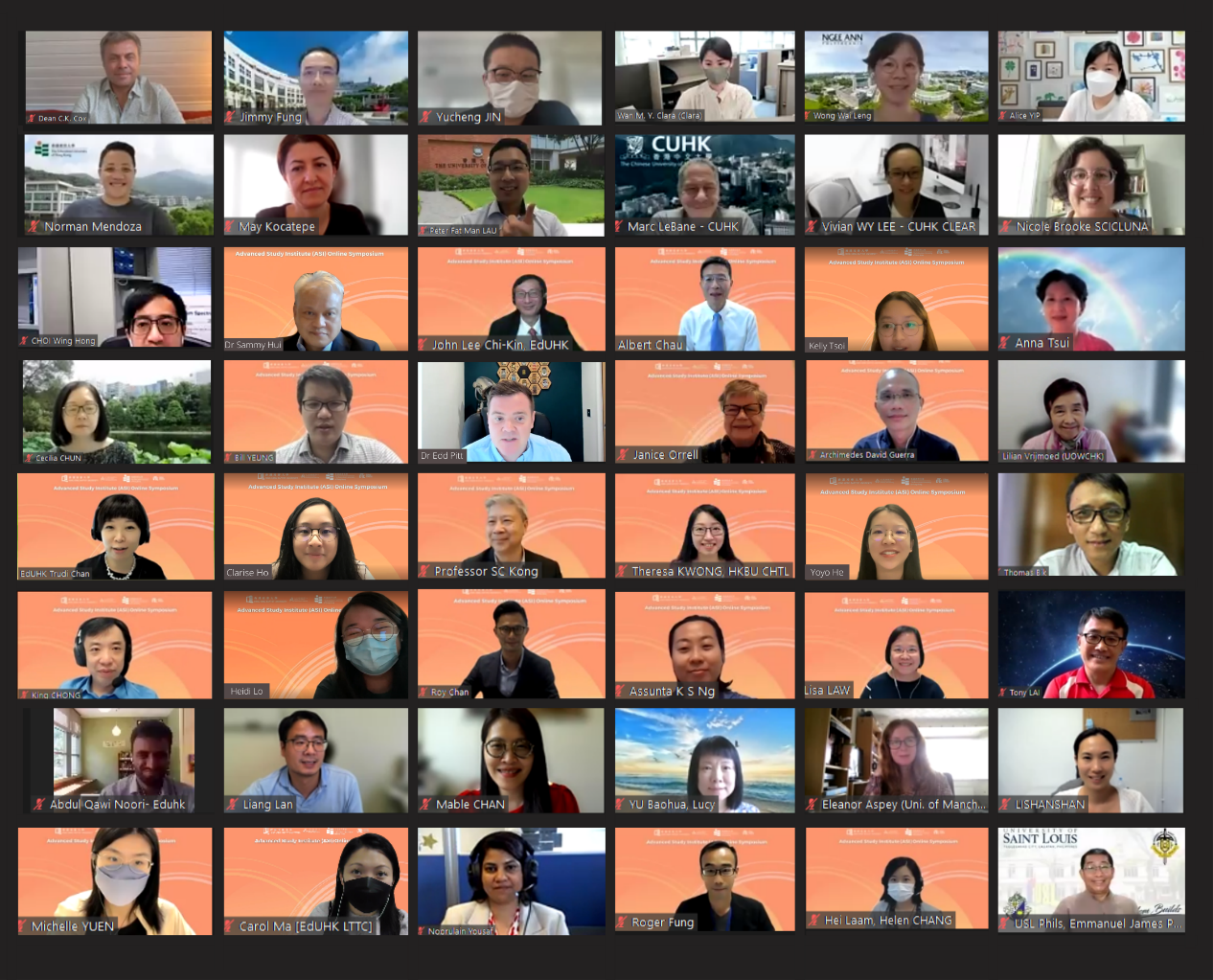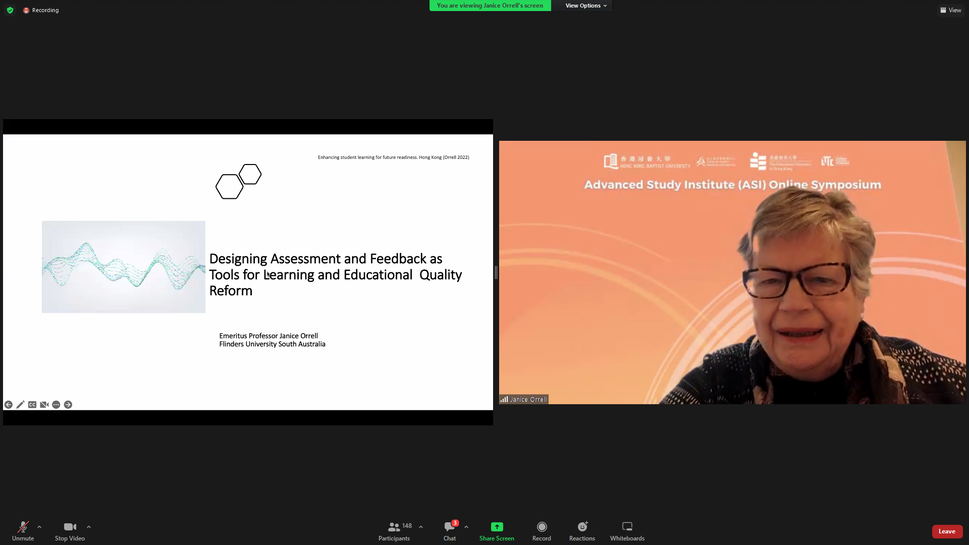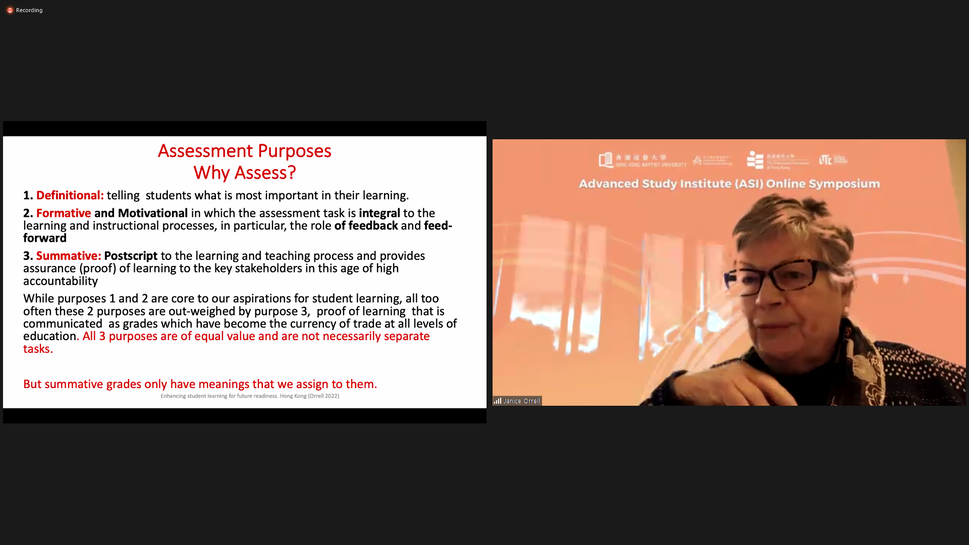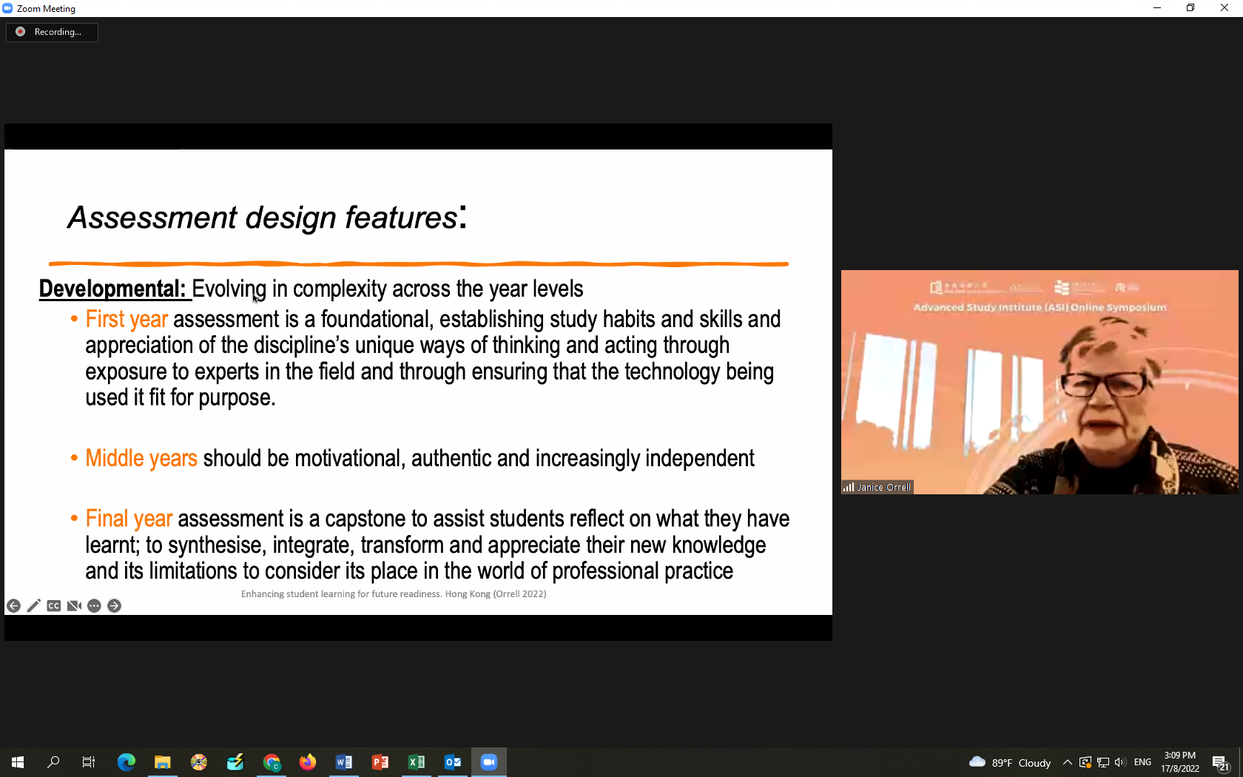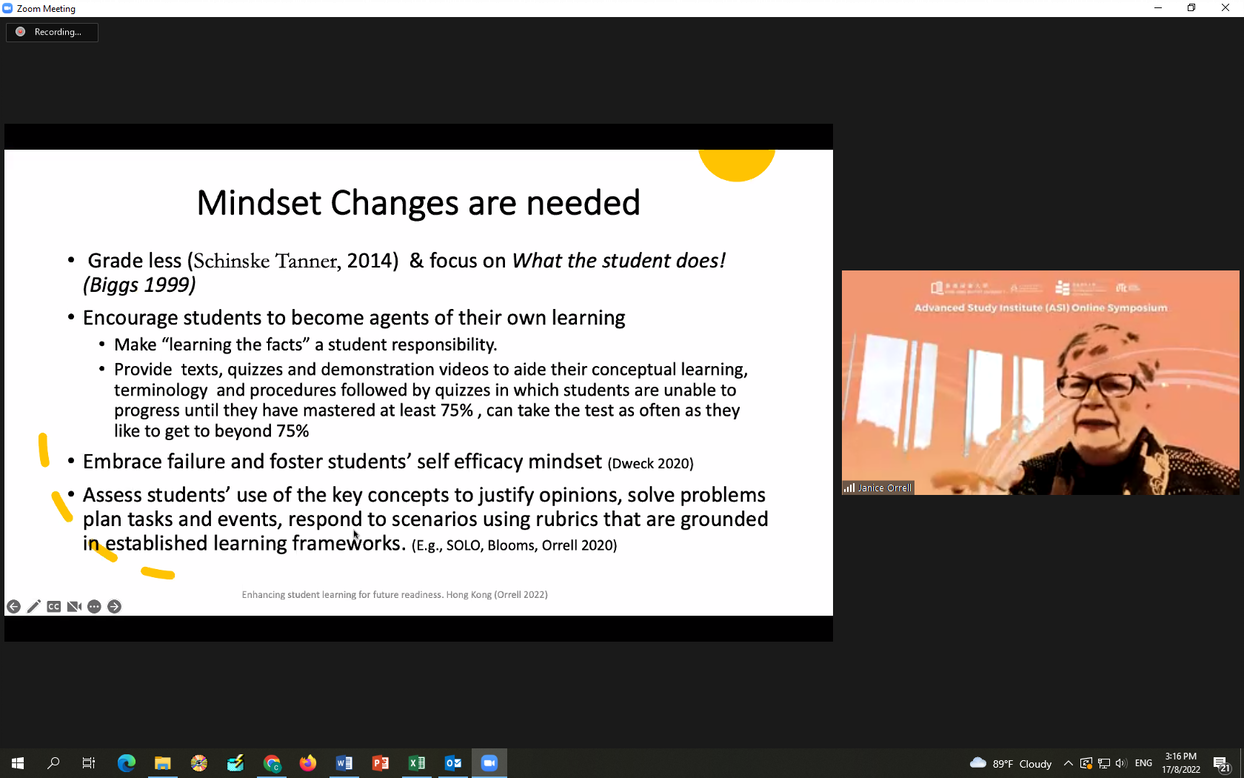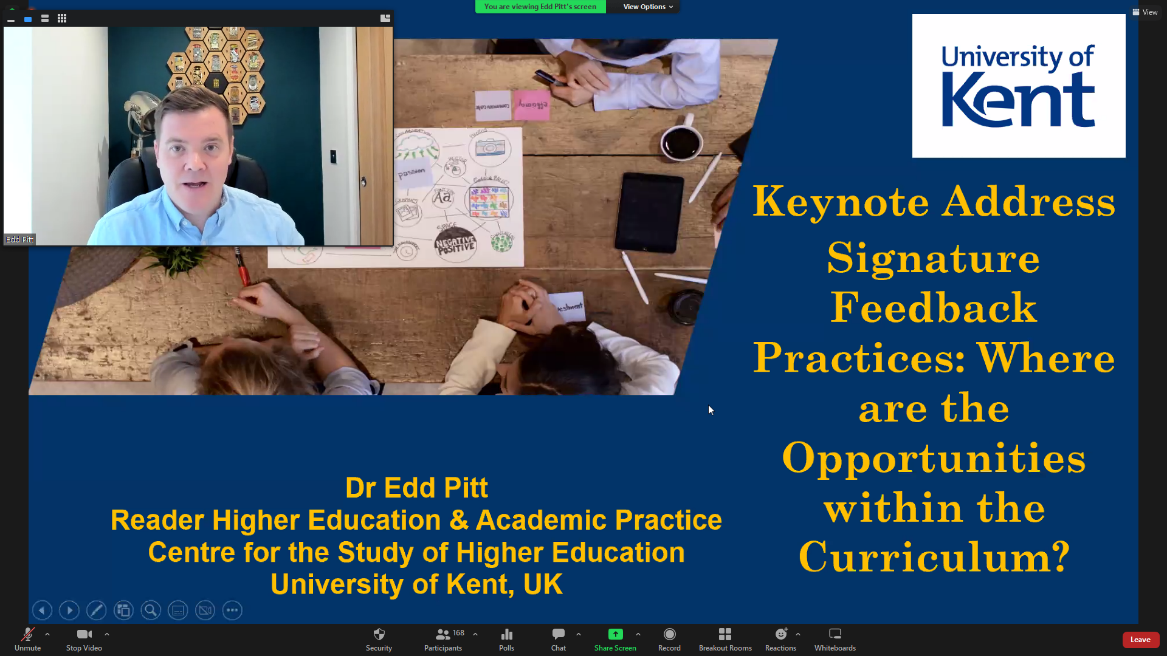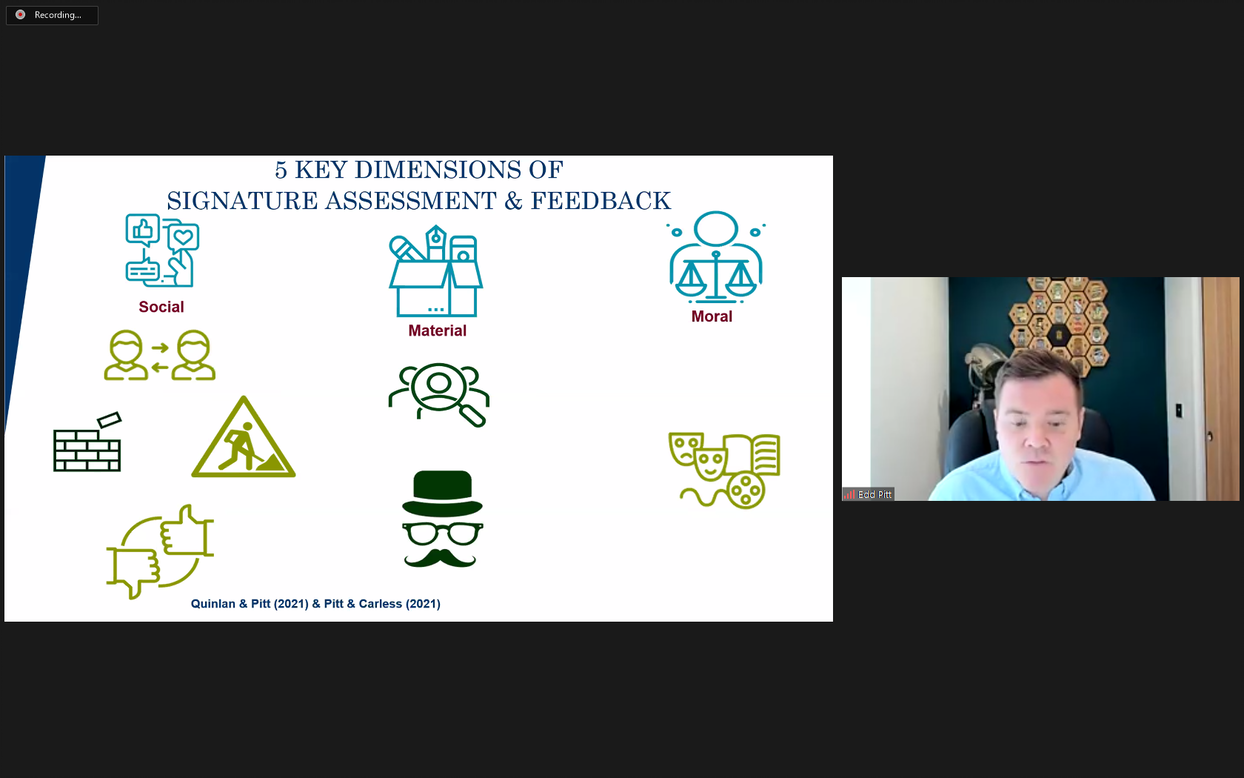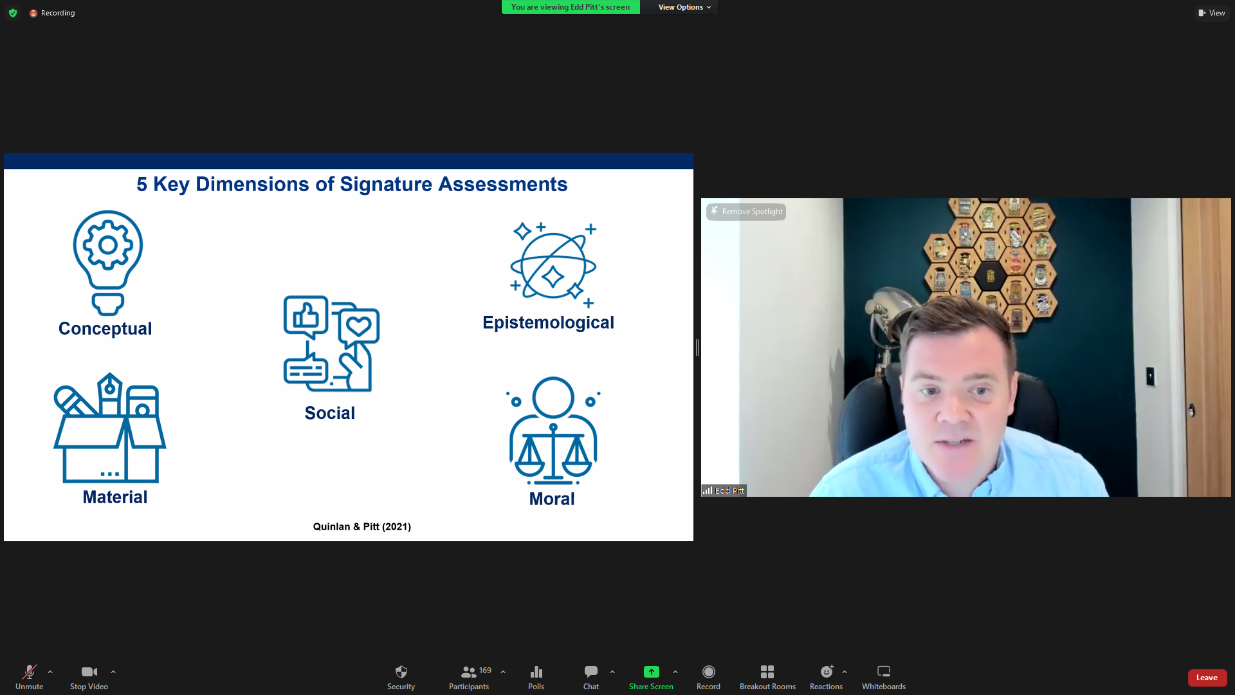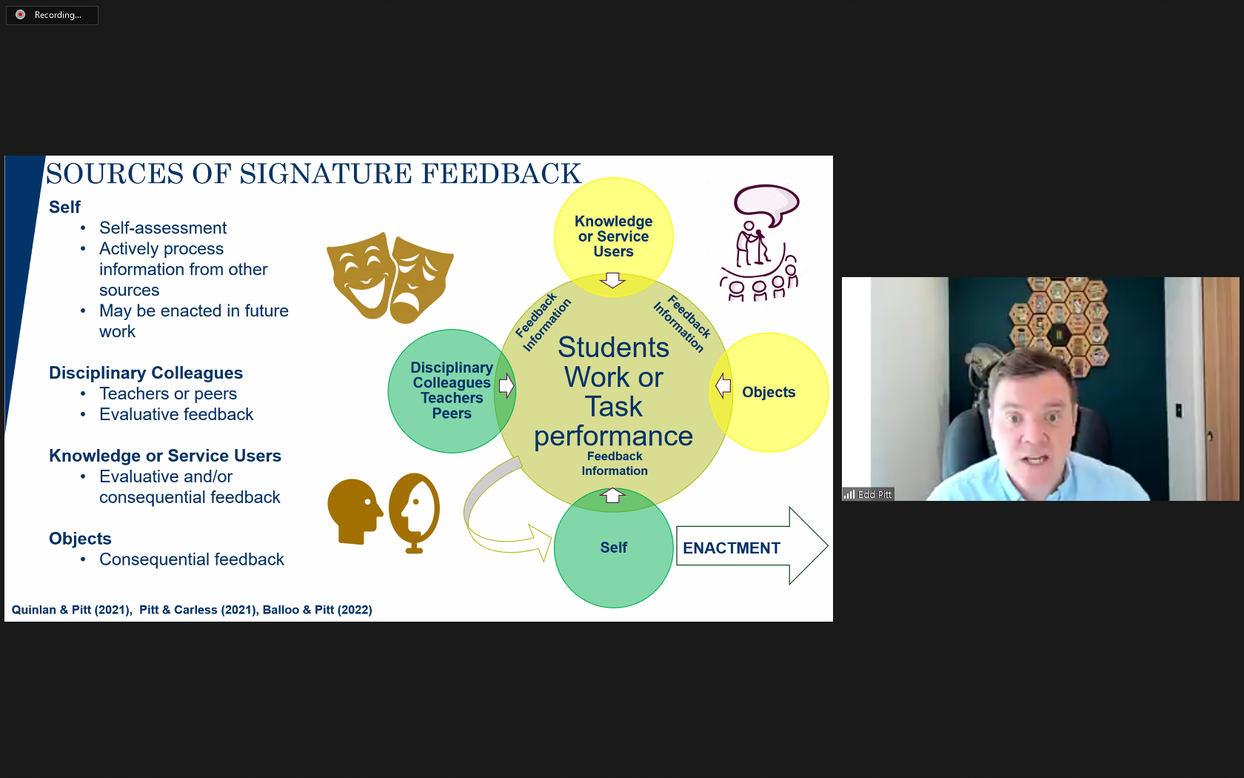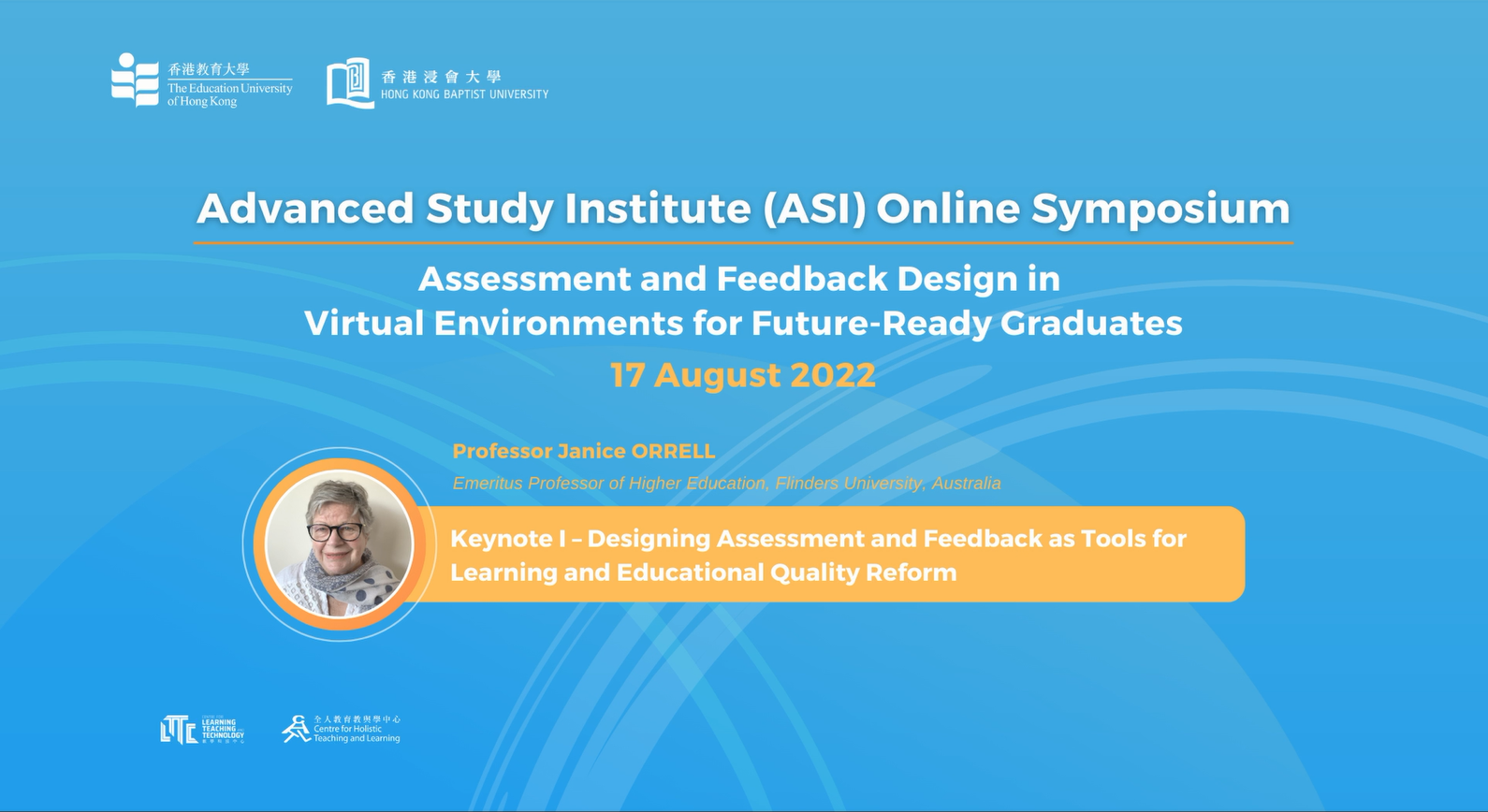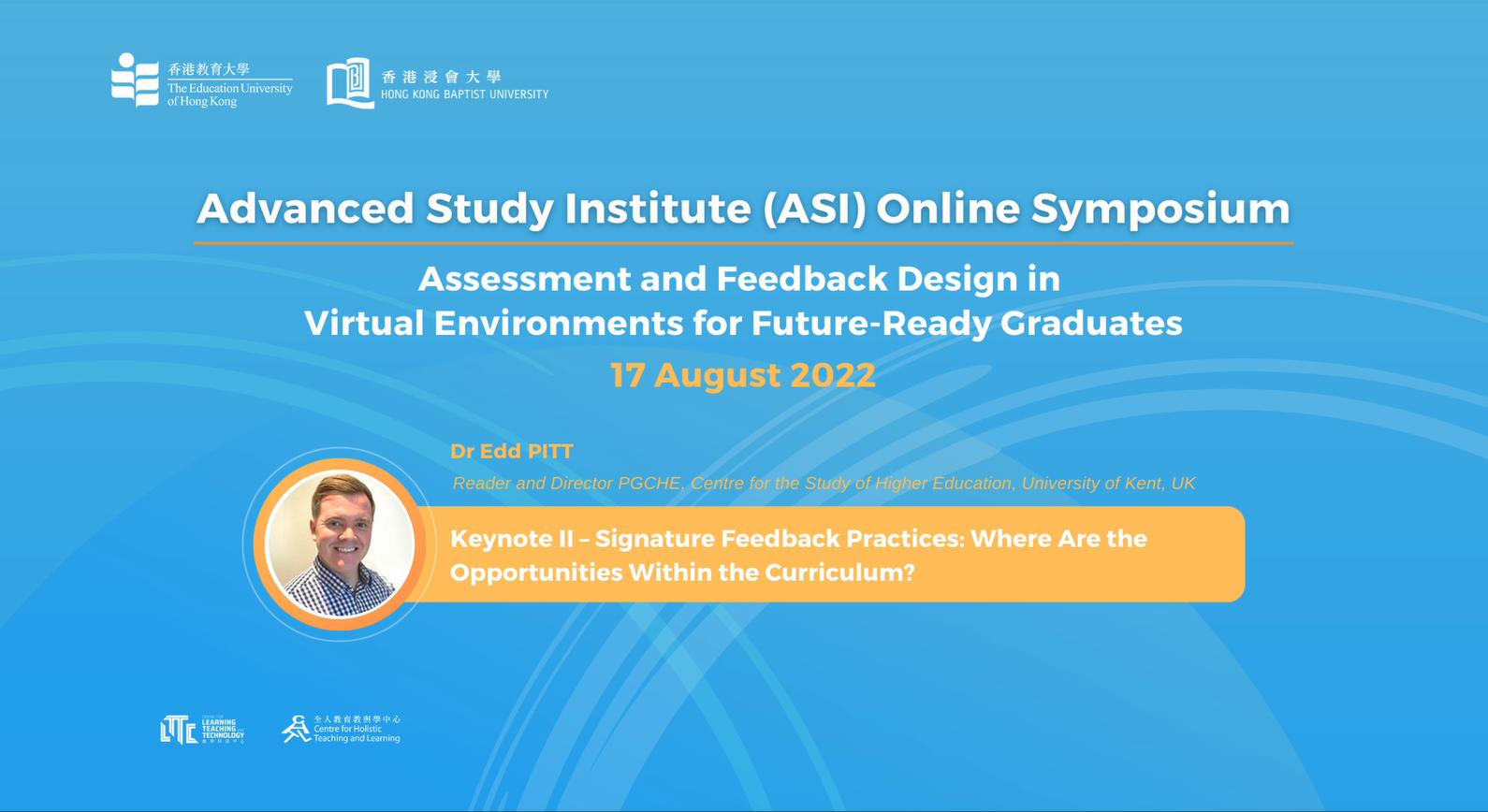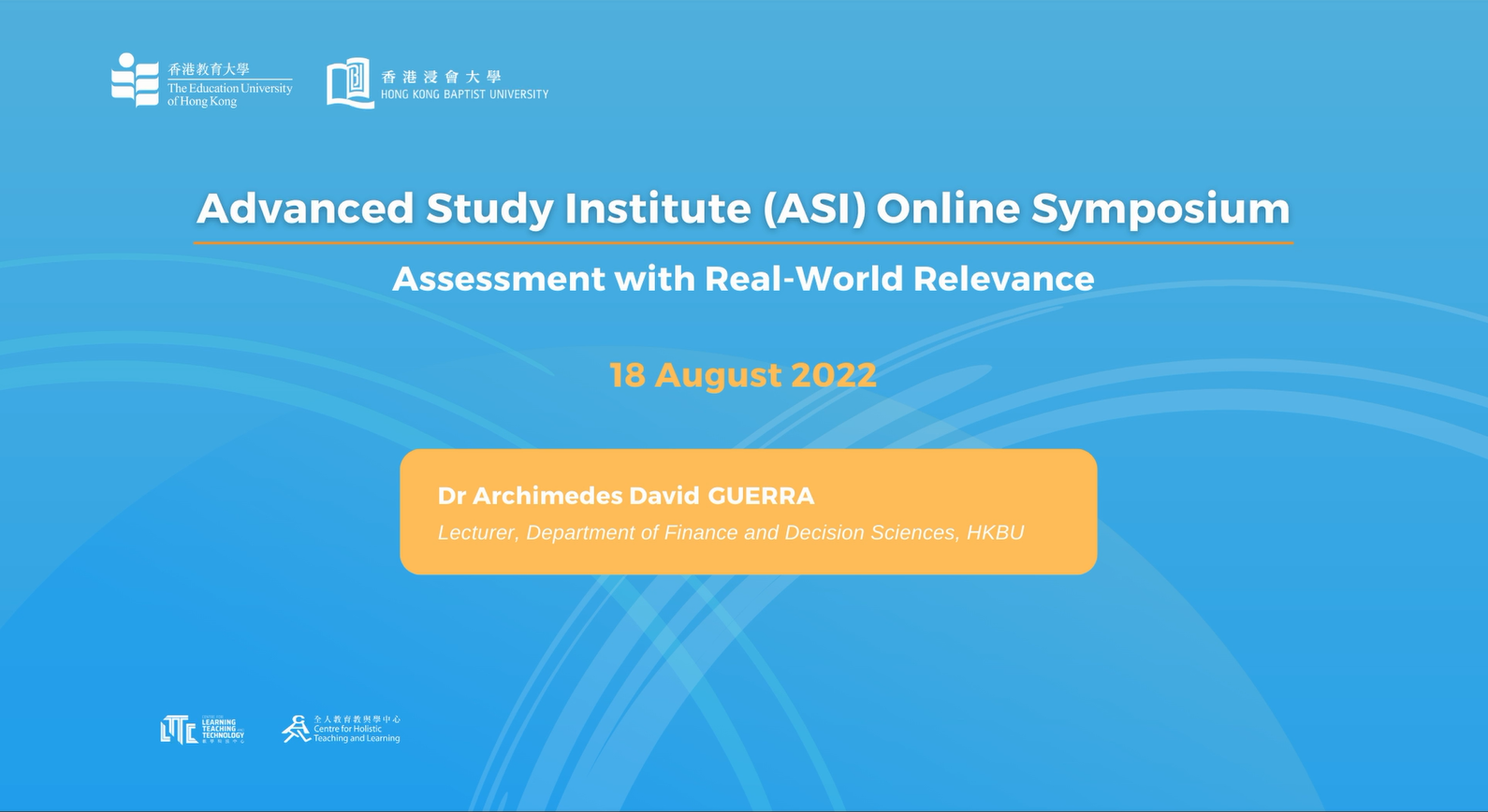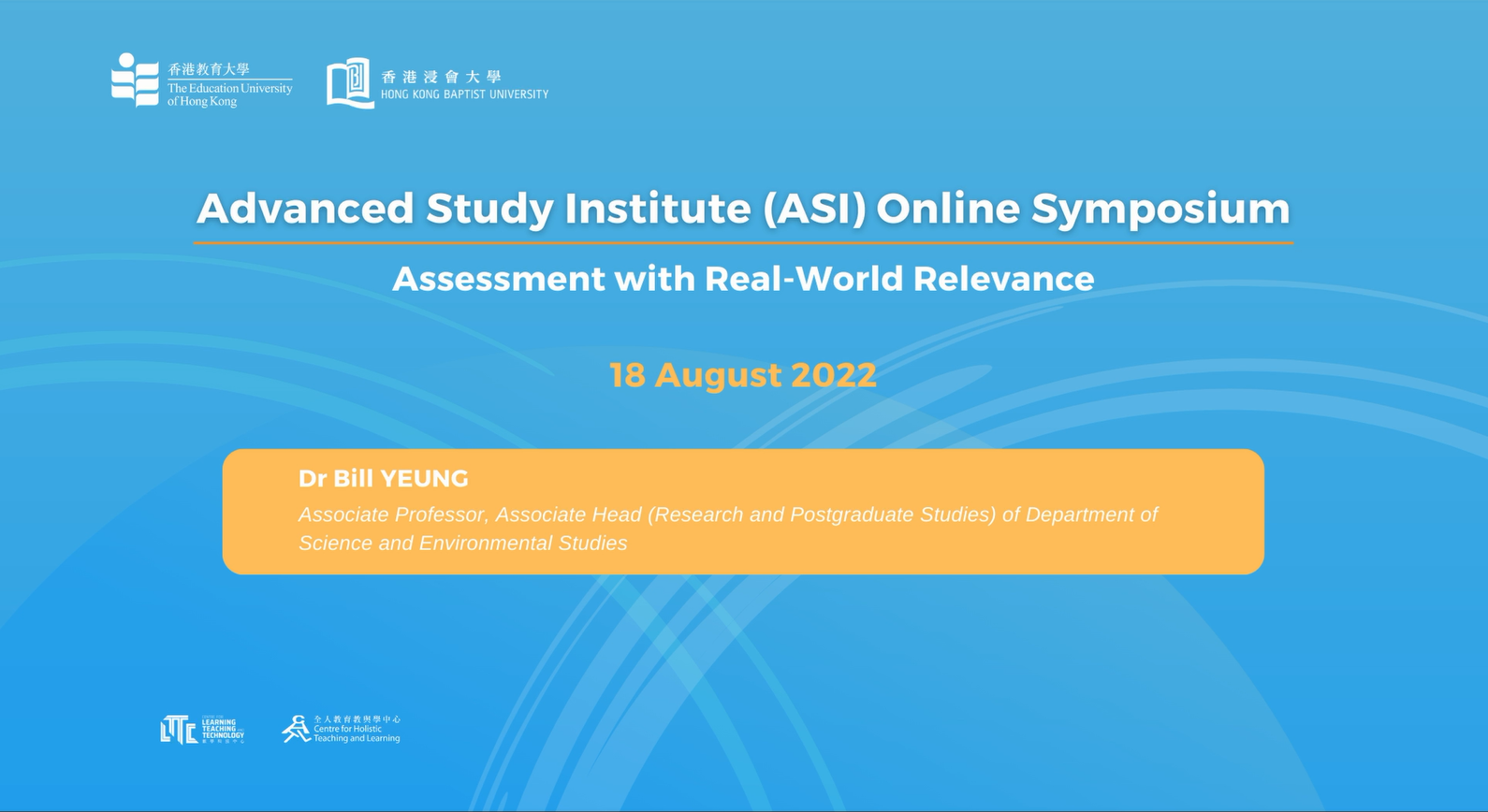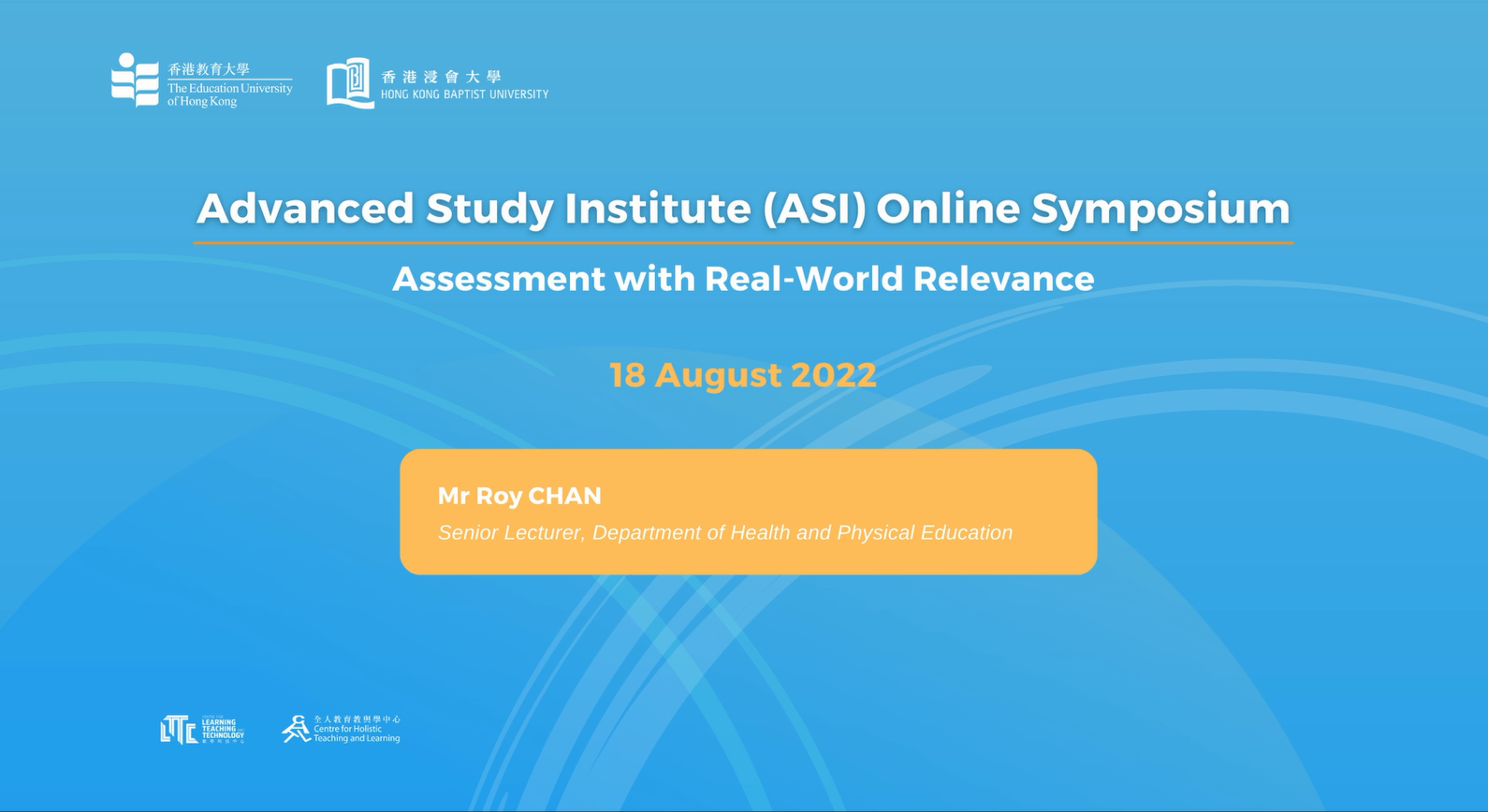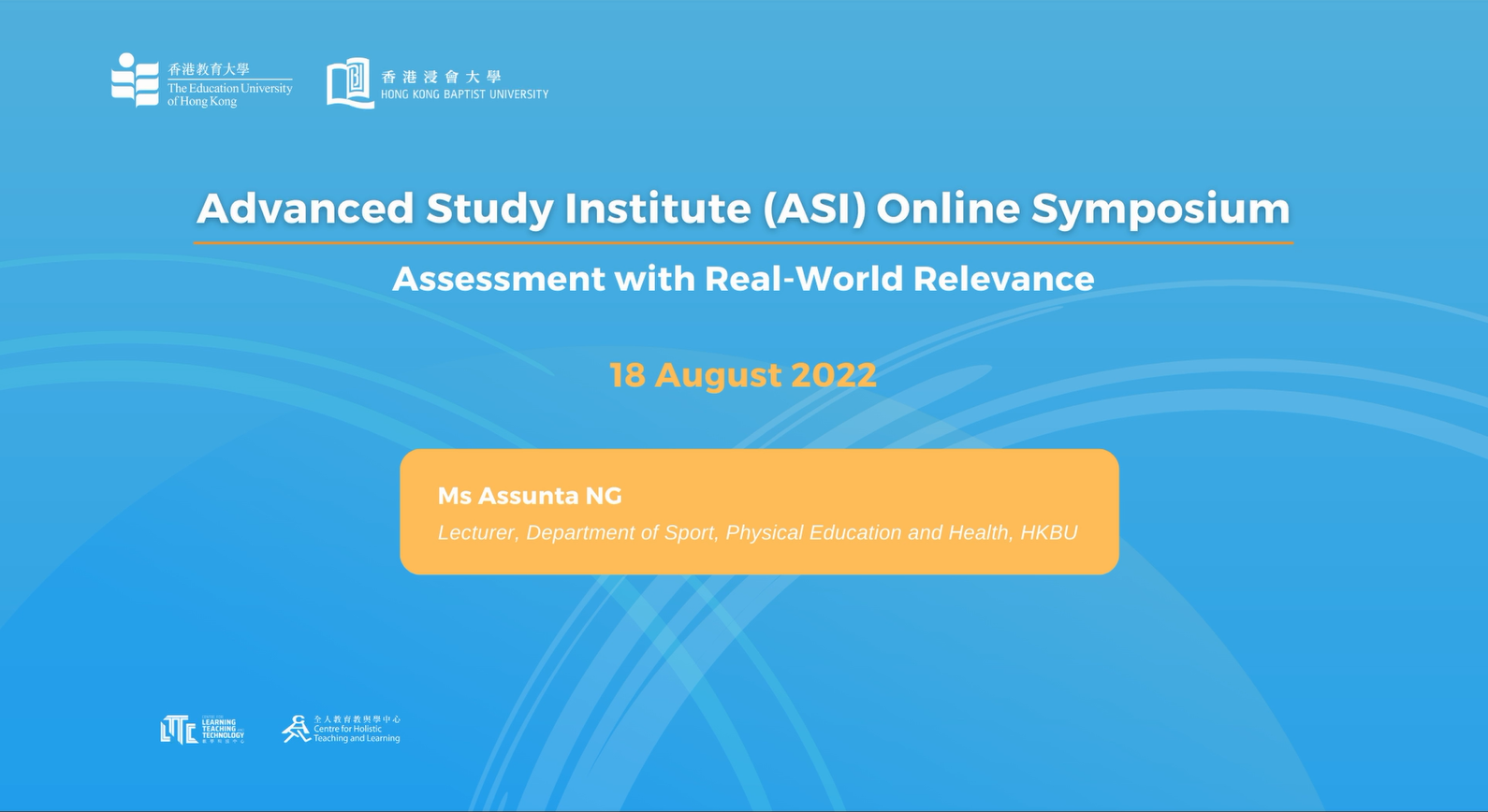Advanced Study Institute (ASI) Online Symposium
| Topic: | Assessment and Feedback Design in Virtual Environments for Future-Ready Graduates |
| Date & Time: | Wednesday, 17 August 2022 / 2:30-5:15pm & Thursday, 18 August 2022 / 2:30-5:15pm |
| Format: | Online through ZOOM |
The online group photos
The Education University of Hong Kong (EdUHK) actively participated in the Advanced Study Institute (ASI) Online Symposium on 17-18 August 2022, with the theme “Assessment and Feedback Design in Virtual Environments for Future-Ready Graduates”.
Keynote 1: Designing Assessment and Feedback as Tools for Learning and Educational Quality Reform
Emeritus Professor Janice Orrell, at Flinders University addressed the significance of assessment for learning in Higher Education and discussed how teachers and students approach the meaning of assessment for better learning outcome.
Professor Orrell emphasized that assessment should not simply be used as a validation or report on students’ performance. Rather, it should be counted as a learning process. The purpose of assessment not only serves as a clear indicator in informing students the expected learning outcomes of the course, but also a motivator in guiding students to walk out from their own academic ignorance. Well-designed assessment with rich feedback can enhance students’ engagement and belonging in learning, as well as train them to become life-long self-regulated learners with essential higher order competencies and reasoning skills.
Professor Orrell further discussed several critical features for assessment design. First, the assessment should be developmental. In other words, assessment should meet the learning needs of students according to their year levels. For instance, the assessment for freshman aims in preparing them with the necessary study habits, skills and mindsets to continue their study. While the assessment for the students in middle years should be motivational and relevant to real-world practices, the assessment for the graduate students serves as a capstone to help students reflect on what they have learnt. Second, the assessment should be authentic. Teachers can match the tasks to real world, professional and accreditation requirements. Third, diversity should be emphasized in the assessment, allowing students with different backgrounds to cooperate together for social interaction and relationship buildings. Forth, teachers should provide a supportive environment with the aid of technology to students. She offered some assessment examples from different universities. For instance, at a biology class, students were asked to form groups to present a complex biological issue. They also needed to produce a website to inform the partakers in society and a brief personal opinion piece. In such way, they could apply and reflect on what they have learnt in a real-life scenario. Professor Orrell reminded that teachers should use multiple methods to fully assess the student’s performance before deciding their grades as a student’s performance varies in different contexts. Teachers should also provide consequential feedback to enhance students’ capability.
Professor Orrell encouraged teachers to renew their mindsets on assessment by grading less and focusing on what a student can do. The approach of assessment for learning can encourage students to become agents of their own learning and enhance their academic self-efficacy with the deliberate assistance from teachers.
Keynote 2: Designing Assessment and Feedback as Tools for Learning and Educational Quality Reform
Dr Edd Pitt, a Reader in Higher Education and Academic Practice and the Programme Director for the Post Graduate Certificate in Higher Education at the University of Kent, stressed the importance of signature feedback practices in students’ learning. He also suggested how teachers can put this into practice within the curriculum.
The aim of promoting signature feedback practices is to enrich the assessment feedback by taking the unique aspects of a specific discipline into account. Student values what they can gain in learning, especially the usefulness and timeliness when it comes to feedback. Dr Pitt thus suggested that specific, understandable and actionable feedback should be given prior to submission of the coursework so that students can use and see the benefits of feedback. Students mainly receive signature feedback information from four sources, including self, disciplinary colleagues, knowledge or services users and objects. Dr Pitt took students studying comedy as an example. First, receiving feedback from self is done by the self-assessment of the students on their own comedian performances and the information processing with the feedback from other sources. Second, students can receive evaluative comments from their teachers and peers regarding the quality and improvements of their performances. Third, students can receive both evaluative and consequential feedback from the public audience. The physical response or cues of the audience towards the students’ act can inform students how their performance is. Fourth, students can interact with objects appearing in their discipline in simulations to receive consequential feedback and able to reflect on and make sense of their actions on the environment.
Dr Pitt emphasized that it is important to let students know that the feedback practice constitutes a rich part of their learning environment. Students should have room to make sense of the feedback they received so that they can decide what to take on or ignore. Also, effective feedback could not only be used at that specific course, but also across the programme. Students believe that making mistake is part of the learning process and they can use feedback to correct themselves before the major summative assessment. Seeing how people use feedback could also teach students how to make use of their own feedback. As greater cognitive power is involved in articulating feedback than receiving feedback, peer feedback practice has a profound learning impact on students’ study.
Concerning when and how teachers should give feedback to students, Dr Pitt suggested that giving feedback at class or online directly to students was effective as a direct conversation could help avoiding misunderstanding and allowed students to raise questions. To improve assessment feedback, teachers and students should avoid developing an island mindset, thinking that feedback is contained in a specific unit of study. Dr Pitt advised that program teams could have a discussion in how to give feedback to students more effectively. This can help teachers from different units work in a joined-up approach without replicating the same work and allow feedback to be reinforced across different programs.


